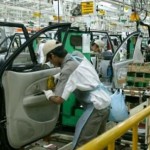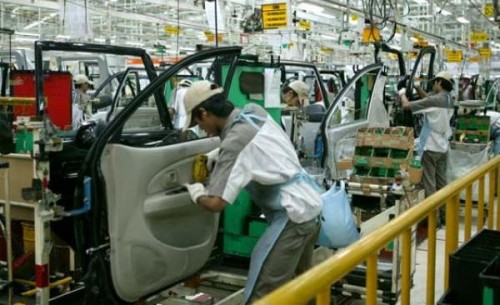 JAKARTA— The automotive industry is increasingly serious about targeting Indonesia as a potential market and car production base, as well as a research and development center to create product innovation. This step can strengthen the national industrial structure as well as encourage entry into global value chain activities.
JAKARTA— The automotive industry is increasingly serious about targeting Indonesia as a potential market and car production base, as well as a research and development center to create product innovation. This step can strengthen the national industrial structure as well as encourage entry into global value chain activities.
“We appreciate PT Astra Daihatsu Motor (ADM) for its commitment to making Indonesia a vehicle production base as well as place of technology transfer in the field of vehicle design and engineering through the establishment and expansion of research and development (R&D) Center,” said Minister of Industry Mr Airlangga Hartarto.
The establishment of R&D Center will position Indonesia as one of the global players, especially in the type of vehicle that has been the flagship of Daihatsu in the world market. “The research of vehicle can be fully done and developed independently by our Indonesian fellows,” said the Minister.
The development of the automotive industry in Indonesia has been supported by government policies that put the automotive industry as one of the mainstay sectors for its big role to the national gross domestic income (GDP). “We expect this achievement to be an important momentum to maximize the automotive industry sector in contributing to economic growth for the better,” he said.
The Minister explained, the innovation center built by the automotive industry is one of the efforts to face the era of Industry 4.0. Innovation is necessary for industry to become competitive in entering the fourth industrial revolution, utilising the latest technologies such as robotics, 3D printing, artificial intelligence, and the internet of things.
In the automotive sector, the government is working to develop a low carbon emission vehicle (LCEV). This programme continues the success of low cost green car (LCGC). “Vehicle production can keep pace with the latest technological developments such as hybrids, and the government is also pushing rural vehicle production,” he said.
The Ministry of Industry launched a vocational education program that links and matches between vocational schools (SMK) and industry. “We have launched such programme in East Java, which we will be continued in Central Java involving 100 industries and more than 360 vocational schools. The program is phased in to other areas, “the minister said. (*)








